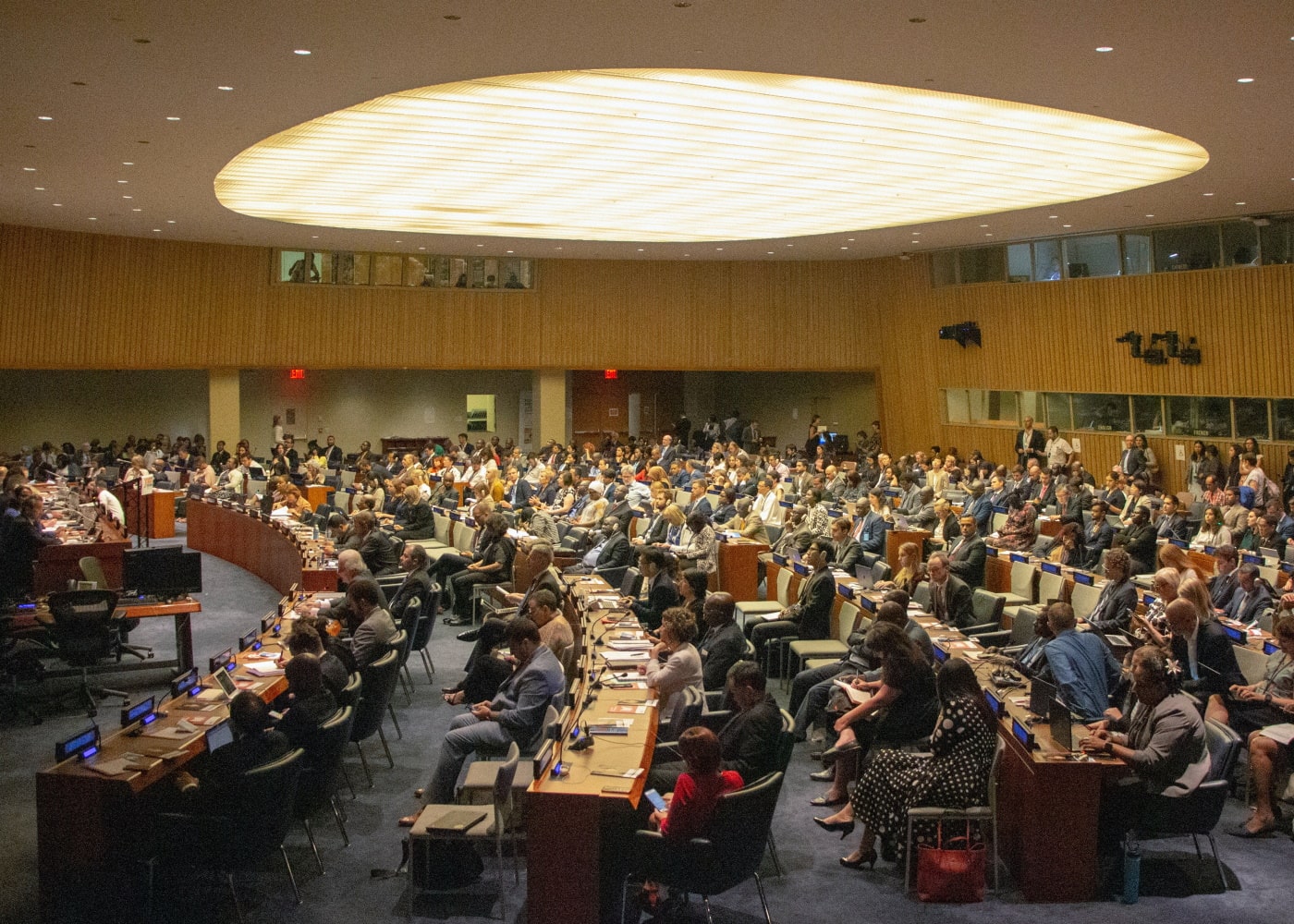COP26 - Did Glasgow Meet the Standard?

The tone of COP is often optimistic in week one, with reporting running into the reality of compromise and delay in week two. Yet the tone surrounding COP26 was one of managing expectations – so what was the final verdict?
What we hoped to see:
- Nationally Determined Contributions (NDCs) - that countries update their national climate action plans with actions through to 2030, setting them on the path to achieve net-zero by 2050
- Climate Finance - that finance to assist poorer countries would be greatly increased, including the 100 billion USD per annum that has previously been committed to and not achieved
- Coal - that clear plans would be committed to phasing out the use of coal
- Forests – that plans would be agreed to preserve and increase the planet’s forest carbon sink resource
- Transport – that progress would be made on actions for road transport, aviation and shipping industries’ contribution to decarbonization
- Carbon Trading - that agreement would be made on the global carbon trading system that was initially outlined in Paris at COP21 – the notorious ‘Article 6’ text
- NDC’s do not currently take us to net-zero by 2050, in fact, they get us just a quarter of the way there, leading to 2.4°C warming by 2100. However, the Glasgow Climate Pact requires all nations to return to the next COP in Egypt with reviewed and revised plans
- On Finance, the commitment is to double 2019 levels by 2025. However, does not necessarily meet the 100 billion USD per annum previously promised. In addition, calls for a specific ‘loss and damage’ fund to support developing countries did not make it into the final text
- While a coalition of 190 countries and organizations agreed to both ‘phase-out’ coal power and end support for new coal power plants, the COP text was watered down in the final days, as some of the world’s largest coal using nations demanded the wording ‘phase-down’
- On forests - 140 world leaders promised to end net deforestation by 2030 – meaning that harvesting can continue if replanting is maintained to the same levels
- Transport – The ‘International Aviation Climate Ambition Coalition’ consisting of 23 governments, representing over 40% of global aviation emissions, committed to a new aviation decarbonization target through the International Civil Aviation Organization (ICAO). In addition, the ‘Declaration on Zero Emissions Cars and Vans’ aims to achieve all sales of new cars and vans being zero emission globally by 2040
- On carbon trading, progress was made on commitments made in Paris – with guidance now in place for carbon markets to function, providing trade between countries and a new crediting mechanism to attract green investment. Countries will be required to report emissions and progress every two years
- A Global Methane Pledge to cut 30% of methane emissions by 2030 was agreed by over 100 countries. Half of the world’s top 30 methane emitters joined the pledge - but many have not
- 450 banks, pension funds and financial institutions, between them controlling 130 trillion USD of global assets, have aligned themselves to the 1.5°C warming limit, unlocking that capital to fund the transition to clean energy such as renewables
- The UK committed to become the first net-zero aligned financial center, requiring financial institutions and all UK-listed companies to publish plans on how they will transition to net zero
- The United States and China unveiled an agreement to ‘work together on climate change’
More than 135 countries have committed to net-zero with target dates that stretch as far as 2070. Many nations have not made any commitment at all and the reality is that the action needed to limit global warming to the critical target of 1.5°C remains a long way out of reach. This puts even more onus on the business world to drive radical changes in their own operations and supply chains, to commit to net-zero targets - and to keep those promises.
To learn more, click here.
Topics:
EHS Compliance
Regulatory Compliance
Related
Sponsored Content
About the Author

Heather Moore, P.E.
LRQA
Heather Moore, P.E. is LRQA’s Supply Chain Sustainability Technical Director where she supports sustainability products and helps clients achieve their goals in ESG assurance. She joined LRQA 10 years ago as a Lead Auditor/Verifier, providing assessment
and verification services for greenhouse gas emissions and other sustainability data, ISO 14001, and social auditing schemes. She has since held various roles with LRQA related to management, training auditors and verifiers, running second-party audit
schemes for global companies, and leading complex verifications.
Her 16+ years of practice experience in the environmental field have taken her to landfills, power plants, cruise ships, upstream and downstream oil and gas operations, chemical plants, hotels, agricultural operations, and various manufacturing facilities. She received a B.S. in civil engineering from Purdue University.
Her 16+ years of practice experience in the environmental field have taken her to landfills, power plants, cruise ships, upstream and downstream oil and gas operations, chemical plants, hotels, agricultural operations, and various manufacturing facilities. She received a B.S. in civil engineering from Purdue University.

